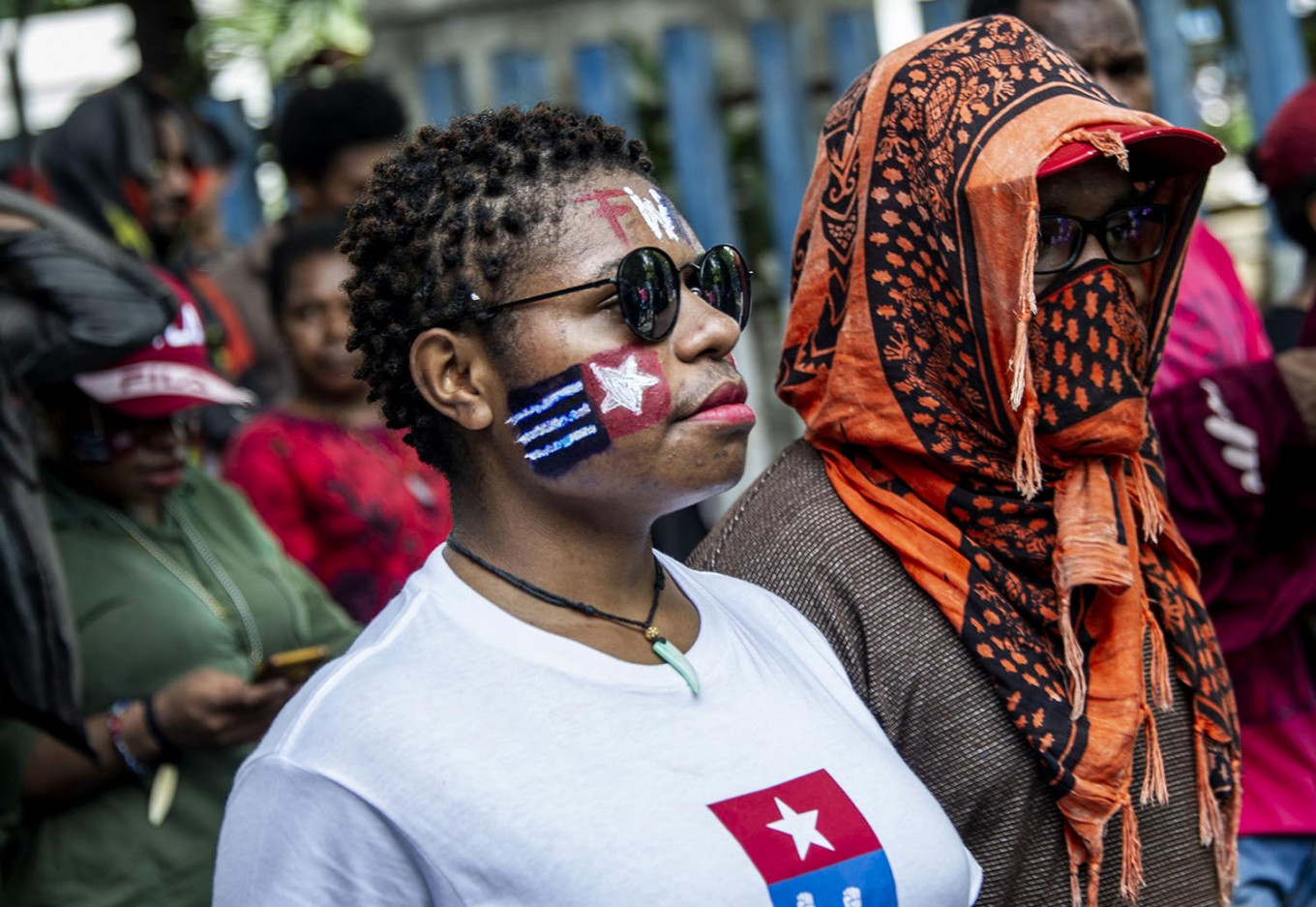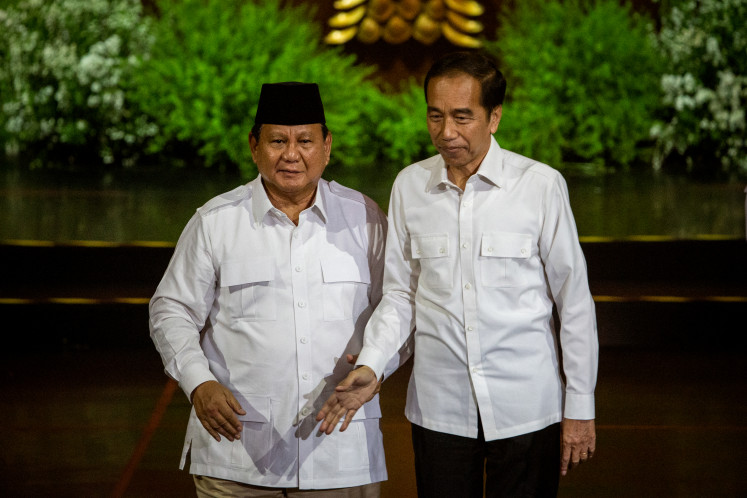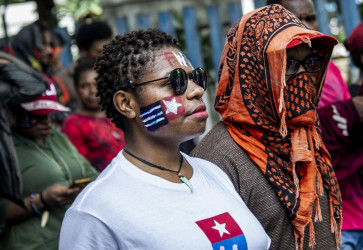Popular Reads
Top Results
Can't find what you're looking for?
View all search resultsPopular Reads
Top Results
Can't find what you're looking for?
View all search resultsAre Papuans, Papua still part of the national narrative?
Change text size
Gift Premium Articles
to Anyone
E
fforts have been made and policies have been formulated to deal with the complex problems of Papua, yet there has been scant progress under the current regime.
President Joko “Jokowi” Widodo’s policies on Indonesia’s easternmost area still use a welfare-oriented approach. Hopefully, protests in Papua will decrease following efforts to develop the area through the Smart Indonesia Card (KIP) and the Healthy Indonesia Card (KIS); the construction of infrastructure such as roads, ports, airports and bridges to connect isolated areas in Papua and West Papua; and the one fuel price policy in both provinces.
However, a high number of protests, entailing massive civilian arrests from 2015 to 2017 and many unlawful killings of indigenous Papuans by police and military officers, have been recorded by various human rights organizations.
The narrative of “developmentalism”, which hopefully aims to solve the complex problems in Papua and West Papua, has become a recurring narrative among the country’s presidents, with the minor exception of Abdurahman “Gus Dur” Wahid.
The developmentalism narrative, meant to be reproduced by the central government, its ministries and its agencies, with only slight modification, has yielded a general perception among Indonesians that “the Papua issue” is all about welfare.
A survey conducted by change.org, an independent petition website, reflects that perception among the Indonesians. Among 27,298 respondents, 26.86 percent of Indonesians living outside Papua think Papuans’ problems are related to poverty, corruption and poor education.
In contrast, 23.75 percent of Papuans believe that human rights, violence, national integration and political liberation are the most pressing issues. The significant gap in perception between the Papuans in Papua and West Papua, and non-Papuans outside the provinces, elucidates the unresolved and unfinished historical and nationalist narrative among many Indonesians toward Papua and the Papuans.


















